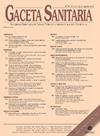Reformas de atención primaria en América Latina: avances en Brasil, Chile, Colombia, México y Perú
IF 1.5
4区 医学
Q3 HEALTH CARE SCIENCES & SERVICES
引用次数: 0
Abstract
Since the 1990s, structural reforms have been initiated in Latin America, with varying degrees of success. One of their main objectives has been to transform health systems, with an emphasis on strengthening primary health care (PHC). This implies promoting a comprehensive and cohesive approach, reducing fragmentation in the provision of services, improving coordination between the different levels of care, and ensuring better quality of care. The purpose of this article is to briefly reflect on the initiatives and reforms related to the implementation of PHC in recent years in Brazil, Chile, Colombia, Mexico, and Peru. These countries have had structural and historical differences between their PHC reforms, as well as some common characteristics. Despite the heterogeneity between the countries analyzed, there are common challenges to achieve universal access and equity in health. The reforms and programs implemented have recognized the importance of PHC as a central axis to improve access and reduce health inequities. Although different models of PHC have been designed, most share comprehensive, preventive and health-promoting approaches, with an emphasis on community participation. However, recent challenges accentuated by the pandemic have revealed the fragilities of PHC in these countries. To achieve effective and equitable universal access, greater political commitment, strong intersectoral initiatives, training and retention of PHC professionals, and sustainable financing mechanisms will be crucial.
[拉丁美洲的初级保健改革:巴西、智利、哥伦比亚、墨西哥和秘鲁的进展]。
自 20 世纪 90 年代以来,拉丁美洲开始进行结构改革,并取得了不同程度的成功。其主要目标之一是改革卫生系统,重点是加强初级卫生保健(PHC)。这就意味着要推广一种全面的、有凝聚力的方法,减少提供服务方面的分散现象,改善不同层次医疗服务之间的协调,并确保提高医疗服务的质量。本文旨在简要反思近年来巴西、智利、哥伦比亚、墨西哥和秘鲁在实施初级保健方面的举措和改革。这些国家的初级保健改革既有结构和历史上的差异,也有一些共同特点。尽管所分析的国家之间存在差异,但在实现普及和公平医疗方面却面临着共同的挑战。所实施的改革和计划都认识到了初级卫生保健的重要性,将其作为改善医疗服务和减少医疗不平等的核心轴心。虽然设计了不同的初级保健模式,但大多数都采用了全面、预防和促进健康的方法,并强调社区参与。然而,最近因大流行病而加剧的挑战揭示了这些国家初级保健服务的脆弱性。为了实现有效和公平的普及,必须做出更大的政治承诺,采取强有力的跨部门举措,培训和留住初级保健专业人员,并建立可持续的筹资机制。
本文章由计算机程序翻译,如有差异,请以英文原文为准。
求助全文
约1分钟内获得全文
求助全文
来源期刊

Gaceta Sanitaria
医学-公共卫生、环境卫生与职业卫生
CiteScore
4.10
自引率
5.30%
发文量
80
审稿时长
29 days
期刊介绍:
Gaceta Sanitaria (Health Gazette) is an international journal that accepts articles in Spanish and in English. It is the official scientific journal of the Sociedad Española de Salud Publica y Administración Sanitaria (Spanish Society of Public Health and Health Administration) (SESPAS).
The Journal publishes 6 issues per year on different areas of Public Health and Health Administration, including:
-Applied epidemiology-
Health prevention and promotion-
Environmental health-
International health-
Management and assessment of policies and services-
Health technology assessments-
Health economics.
The editorial process is regulated by a peer review system. It publishes original works, reviews, opinion articles, field and methodology notes, protocols, letters to the editor, editorials, and debates.
 求助内容:
求助内容: 应助结果提醒方式:
应助结果提醒方式:


